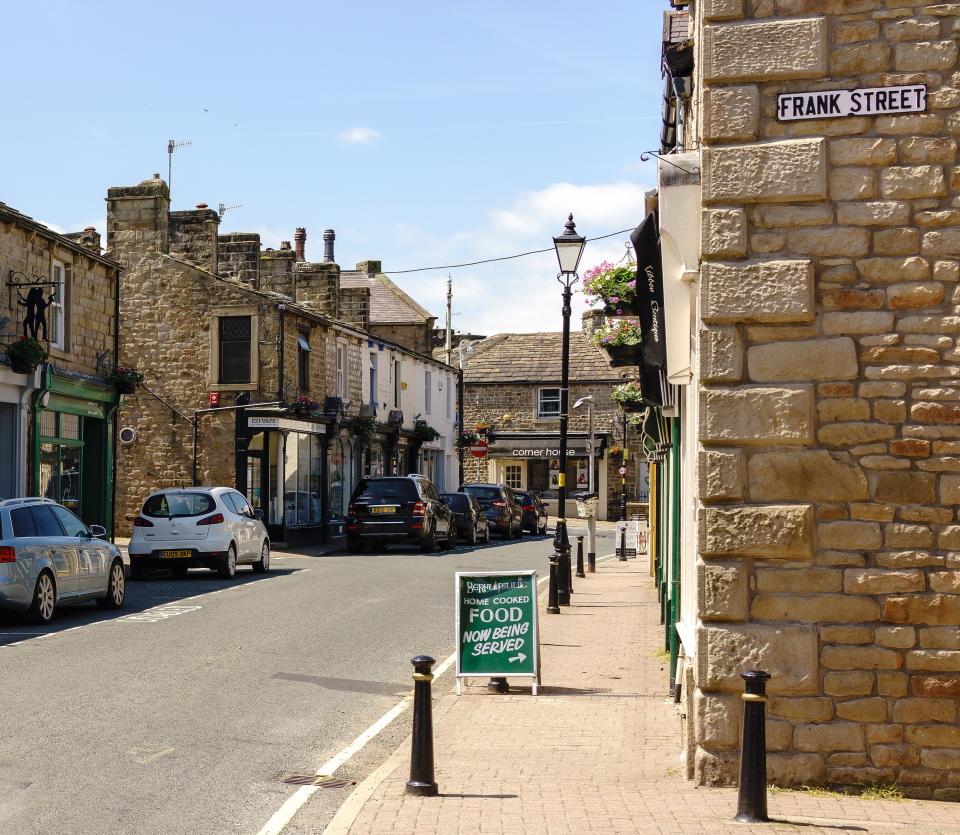Coronavirus: Rolls-Royce job cuts a 'body blow' to town where turbojets born

When Lancashire’s Rolls-Royce workers heard this week that one in three would lose their jobs, Andrew Baron knew his time had come.
The 55-year-old volunteered to go. He is not bitter about Rolls-Royce’s (RR.L) planned 9,000 job cuts worldwide, aware the collapse of air travel leaves the plane engine maker “between a rock and a hard place.”
Leaving after almost two decades will not be easy, but Baron feared he may not be able to leave on such generous terms again. “I’ll have a reasonable pension pot and no mortgage. I’d feel awful if I didn’t and one of the young lads with families got made redundant.”
Factories in Derby and the East Midlands will bear the brunt of job losses, but another nine areas also face cuts. Little-known Barnoldswick in Lancashire, a town of around 10,000 people, is one of them.
READ MORE: Rolls-Royce to slash 9,000 jobs worldwide
Local council chief Mohammed Iqbal warned it will be a “huge body blow” to Barnoldswick. The area’s workers, business and political leaders told Yahoo Finance UK it will send shockwaves through local supply chains and communities. Some fear its two Rolls-Royce factories may not survive at all.
The home of the turbojet engine
Barnoldswick seems a strange site for a multinational engine maker, but that was precisely what made it so attractive.
A quiet former mill town, it sits on a B-road in the so-called ‘cul de sac’ of poorly connected east Lancashire. When carmaker Rover raced to develop a gas-powered jet engine during the Second World War, they wanted a new site unlikely to face German bombing.
Rover’s troubles saw them hand over to Rolls-Royce in 1943, which turned the new Barnoldswick site into one of the world’s first and most successful turbojet manufacturers.
The ‘RB’ name of many of the aerospace giant’s 20th century engines pays subtle homage to ‘Rolls-Royce Barnoldswick.” The town’s factories now make fan blades and other engine parts for leading planemakers.
‘Unprecedented’ crisis as air travel collapses

Today Rolls-Royce is facing one of its gravest crises ever. Company earnings are based on the hours its engines fly, which tumbled by 90% in April as COVID-19 wiped out air travel. Full recovery is expected to take years.
Its share price has almost halved since February, and its S&P credit rating has been slashed to ‘junk.’ “Because of the unprecedented impact of the crisis, we will unfortunately lose people who have worked hard to establish our world-leading position,” a spokesperson said.
A £1.3bn ($1.6bn) cost-cutting plan will see 235 jobs go this year in Barnoldswick, which has already seen its workforce shrink from about 3,000 in the 1970s to 740 today.
READ MORE: Carmaker Bentley to axe up to 1,000 jobs
“They’re not going to get anywhere near enough voluntary redundancies,” predicted Baron, with many older employees leaving in past waves of cuts.
Iqbal said some of Rolls-Royce’s typically well-paid workers would end up on universal credit, facing an abrupt decline in living standards. It is one of the area’s biggest employers, and few firms anywhere are hiring.
It will ripple through wider communities, from redundant workers’ families to the shops they use, “right down to the butty shops,” he added. Some families he knows have seen three generations of Rolls-Royce workers.
‘Everyone’s job depends on everyone else’s’
Cuts at Rolls-Royce’s Barnoldswick factories are also expected to trigger lay-offs at firms supplying and servicing them. Job losses were already mounting from COVID-19.
“This is the tip of the iceberg,” said Iqbal, who fears the 235 redundancies may snowball into more than 1,000 roles vanishing locally.
Miranda Barker, head of East Lancashire’s Chamber of Commerce, said lesser-known local SMEs had seen a “creeping loss of jobs” since April. Rolls-Royce had already reportedly demanded suppliers cut prices.
Lancashire boasts one of the world’s biggest clusters of civil and military aerospace engineering, powering its economy but leaving it particularly exposed to COVID-19.
READ MORE: Firms warned over ‘knee-jerk’ lay-offs
Pendle, the wider council area around Barnoldswick, has 9,000 workers in manufacturing, three times higher than the national average. “You can go anywhere else in the world and find an east Lancashire engineer,” added Barker.
“Everyone’s jobs are dependent on everyone else’s. It’s like pulling a string on a jumper, it’s all going to unravel,” she added. But she believes the crisis threatens not just jobs now, but also the cluster effect that the region’s future prosperity may rest on.
If key specialised firms in the supply chain like designers disappear, she fears global firms may choose to invest elsewhere. If workers like Baron retire early and others uproot, the area loses their skills and experience. And if job and apprenticeship openings remain limited, she fears it could even hit local young people’s aspirations to go to college.
The future of the Barnoldswick factories

The survival of Rolls-Royce itself in Barnoldswick appears to be at stake, with the company announcing a review of all civil aerospace sites worldwide.
“It’s in serious jeopardy,” said Pendle council chief Iqbal. “I’m a glass-half-full chap, but I’m not optimistic.”
Baron worries particularly that falling headcount but fixed overheads at the town’s sites may push up hourly costs and make them unsustainable. High-skilled, high-paid jobs are not easily replaced, and some expect future generations will not get the ‘Rolls-Royce treatment’ in more precarious jobs elsewhere.
“You’re treated with dignity and respect, and the pay for around here has always been excellent,” said Baron. “I can’t think of anybody who wouldn’t say they’re proud to work for the company.”
READ MORE: How UK government spends billions supporting the economy
Even the future of the award-winning local Rolls-Royce leisure club—a sign of its deep roots in the town—may be “up in the air,” according to its manager Anthony Burniston. The site, with a bar, event venue and gym for staff and locals, had been forced to shut already during lockdown.
Burniston is on furlough, and anxious about whether it will ever reopen. He said it was a vital hub, particularly for former employees. “They’ve lost wives, they’ve no family and meet up for a couple of beers,” he said.
Lockdown hasn’t stopped it bringing people together though, with 1,400 locals and even former workers and residents worldwide tuning in to one virtual pub quiz he hosted. “The community spirit is incredible.”
‘We have emerged from troubled times before’
Companies like Rolls-Royce and British Airways (IAG.L) have come under fire for wielding the axe so swiftly, particularly while receiving government support.
A local MP has said furlough grants should enable the engine-maker to save jobs. Barker and Iqbal want a government aerospace taskforce, and more military, HS2 and other public sector contracts to go to civil aerospace firms.
But some analysts agree with its CEO Warren East that job losses are unavoidable for Rolls-Royce to weather the storm. East has warned governments “cannot replace sustainable demand that is simply not there.”
But he has sought to reassure over its future.“We have emerged from troubled times before, to achieve incredible things. We will do so again.”
Lancashire’s aerospace industry itself rose from the ashes of the dying textile trade, with several sites including the Rolls-Royce factory built where mills once stood.
Iqbal hopes the area won’t have to reinvent itself once more. “If aerospace disappears, we’re not going to claw our way back for a long time.”

 Yahoo Finance
Yahoo Finance 